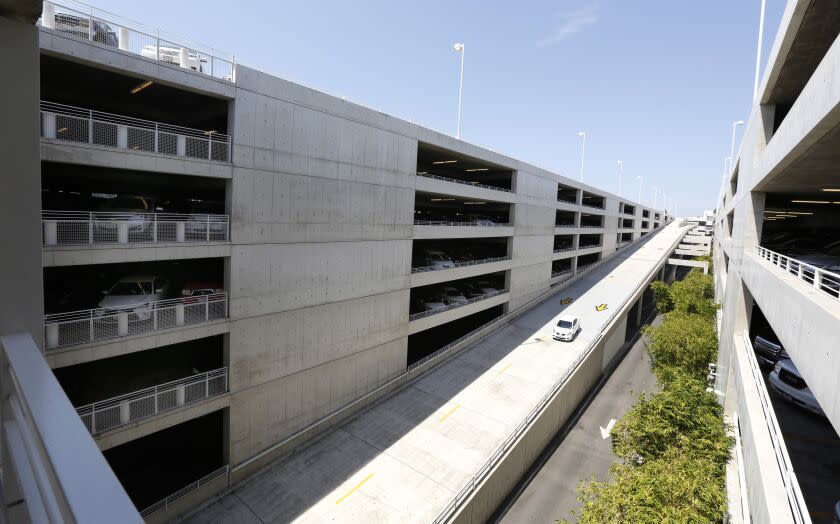Where's my car(toon)? Disney to add vehicle locator feature to park apps

It's late at night, and the fireworks show over Sleeping Beauty's Castle at Disneyland has concluded. You make your way through the crowds onto the tram, where you sit slightly sunburned and coming down from the sugar high supplied by that extra churro.
You disembark the tram and are greeted by a sea of cars in an endless lot or cavernous garage when it hits you: You've forgotten where you parked.
A new feature to be introduced in the Disneyland and Walt Disney World apps aims to help guests avoid these stress-inducing moments by providing their vehicle's exact location, Walt Disney Co. said this week in a release.
The car locator feature will use cellphone location services to mark where guests parked their cars, or guests can input their parking information directly.
Park visitors can still choose to deny the app access to their phone's location services.
At the end of the day, assuming guests have not killed their phone batteries in the park, they can open the app and proceed directly to their cars without a few fruitless detours.
The car locator will launch at the Walt Disney World Resort in Orlando, Fla., this summer and at the Disneyland Resort later this year, the company said.
In recent years, theme parks have leaned into using technology — including digital tickets and location tracking via app — to manage crowds, expedite cashless purchases and cut down on waits at the most popular rides, raising warnings from privacy advocates about large-scale data collection.
This story originally appeared in Los Angeles Times.

